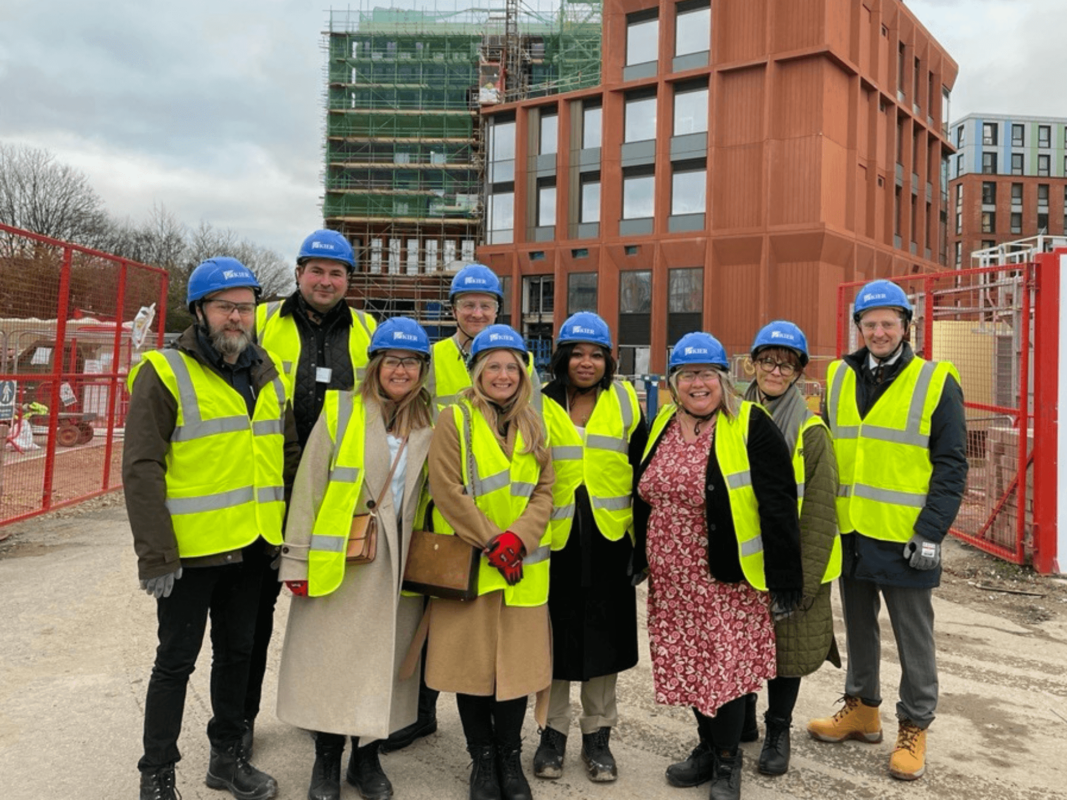Using skills excellence to drive regional economic prosperity

WorldSkills UK, in partnership with NCFE, invited an outstanding cast of experts from across the sector to provide their personal viewpoints on what the term skills excellence means to them and why it matters. In her essay, Dr Ann Limb, Chair of the Lifelong Education Institute, examines what is needed to build an effective skills system. Drawing on examples of successful eco-systems across UK and Europe to tease out the shared, essential alchemical base elements which are needed to create pathways to success.
Andy Burnham’s Vision for Greater Manchester
At a roundtable in January 2024 held in the new city centre campus of The Manchester College, Greater Manchester mayor Andy Burnham spoke movingly to skills leaders and policymakers from the UK and overseas about his vision of hope for the citizens of the city region. He pointed outside to the city centre skyline, reminiscent of New York with its soaring skyscrapers, highlighting that Manchester is now home to giant global businesses like the Bank of America and Siemens. His ambition, he told guests, was that people from the surrounding suburbs would look to this glittering landscape of wealth creation and conclude that this where they want, and will be able, to find meaningful, skilled, and sustainable work. The pathway to success, he added, was through education and training.
This is the rationale for Burnham’s pioneering initiative to create an employment-led, integrated technical system based on a ladder of skills opportunities and qualifications delivered in schools, colleges, universities, training providers and adult education centres that will give his constituents the greatest chance to flourish in life – and to live, work and stay in Greater Manchester. Vision, ambition and leadership are the essential alchemical base elements required to create successful regional skills systems which can thrive in a global world.
Similar Models in Other Regions
Similar models of local and regional skills eco-systems are also being developed in the other nations of the UK, Ireland, Scandinavia and other parts of Europe, such as the Netherlands and the Basque country. These also featured in the Association of Colleges (AoC) convened College Alliance International Conference, Driving regional economic development through education and skills: Learning from across the UK, Ireland and beyond, at which I chaired the session attended by Andy Burnham.
Key Questions for Driving Regional Economic Success
A range of factors required to drive regional economic success through skills, and the components needed to build an effective skills system, emerged from the experiences of conference participants as we addressed the following questions:
- What does an effective local skills system comprise?
- How do the different elements of the system articulate with each other?
- How do a region’s key employers, education and skills providers, community leaders and citizens work together to deliver sustained success?
Cross-sector Collaboration and Research
Specific answers to these questions inevitably vary from region to region and country to country. It is encouraging however that across the four nations of the UK, college membership bodies such as the AoC, ColegauCymru and Colleges Scotland are coming together with the OECD, the Education and Training Foundation, the Edge Foundation and WorldSkills UK to learn from each other and share good practice. Another strand to this cross-sector collaboration is the Lifelong Education Institute’s (LEI) policy and research activity.
We are currently working with Newcastle University on a system of regional education partnerships to make it easier for education providers to work together and offer smooth learning pathways, and with the University of Derby on sector- and place-based skills academies to refine how education providers and businesses work together.
The LEI and City & Guilds (where I am also Chair) are working in partnership on a project to reform Learning Skills and Improvement Plans (LSIPs) so that learners and workers feature at the centre, and to give better national oversight and best practice exchange.
Universal Principles for Success
What emerges from this work is consensus around the universal principles which make up the ‘alchemical base elements’ for success. These are applicable across boundaries, are robust and flexible enough to enable local interpretation, and ensure regional empowerment and effectiveness. I highlight these below and very much hope that, without claiming to set out a blueprint for every region and nation, they constitute a framework for the discussion, design and delivery of skills systems that effectively drive regional economic prosperity, community cohesion and human flourishing.
Effective regional skills systems require three key essential alchemical base elements:
Ambition and agency
These are demonstrated through courageous leadership, clear accountability and consistency, but not conformity, of approach from all partners. They also rely on being underpinned by a collaborative culture – and a ‘can do’ attitude to solving problems.
Comprehensive and inclusive social partnerships
These are by necessity built on goodwill and trust, and rely on institutional cooperation between engaged agencies at local, regional and national levels. Equally essential is the integration of provision across school, colleges, universities and work-based providers, and a shared belief in the critical role played by, and the practice of, lifelong education.
Alignment of employment outcomes, inward investment, regional prosperity and human flourishing
The starting point here has to be the key employers, education and skills providers and community leaders in a region agreeing to work together to achieve shared goals to deliver sustained success, specifically through giving skills opportunities to both existing employees and young people entering the workforce. But local and regional ambitions cannot be achieved in isolation; there must be a willingness from the national government to devolve funding aligned to and integrated with national skills funding systems and recognised qualification frameworks, ensuring any locally-branded skills qualifications are also validated and recognised nationally and internationally.
Finally, regionally significant employers have a key leadership role to play in building a successful system. If it is to succeed, a system must offer learner empowerment and parental engagement if it is to truly inspire confidence among the people living in its back yard – and, in the words of Burnham, convince learners and employers alike that skills education truly offer the “pathway to success”.
By Dr Ann Limb, Chair of the Lifelong Education Institute











Responses